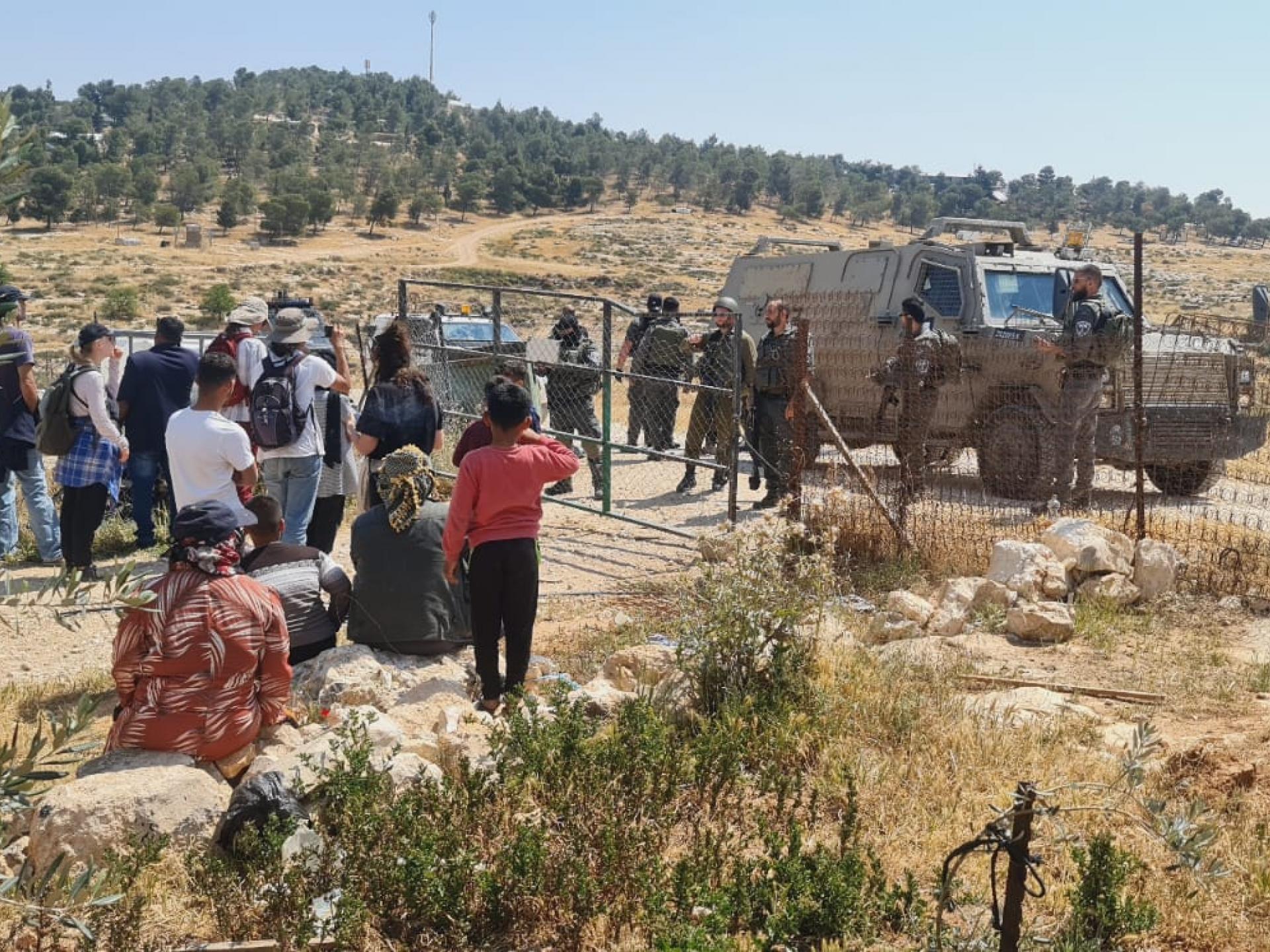At-Tuwani - the settlers of Havat Maon do as they please in the village
Wednesday, Passover holiday + entry ban for workers from October 2023! There is almost no traffic at the checkpoint and on the roads. From Route 60 we turned to Route 317. We passed by Zanuta, which stands desolate after its inhabitants were expelled.
Abu Safi, who was also expelled from his home, from the same area, was admitted to a hospital in Hebron. This deportation worsened his mental and physical condition because he is a man of the land and was used to working in the fields with the herd...
On the way there are fields, most of which are desolate and neglected and only some of them can be seen to have been harvested (now the harvest season). Only when we arrived at the At-Tuwani intersection, we saw farmers harvesting in the field.
We arrived at Nasser Adra from At-Tuwani. He said that about a week and a half ago, the settlers from Havat Maon (which is almost adjacent to the village), arrived with cows! (This is a bit new)! The cows cause more damage than the sheep and the settlers brought them to the fields and agricultural areas of At-Tuwani. People from the village went to Kiryat Arba to complain. They were not allowed to enter the police station and were told to come the next day! When they called the army, they were told that it was a closed military area... so why are the settlers allowed?!
On one of the occasions when we complained and the police arrived, there were also volunteers from the Villages Group in the village and the soldiers who also arrived wanted to arrest them too... The police intervened, prevented an arrest and ordered the volunteers not to enter forbidden places....
That day, a settler also arrived with an ATV, near Jum’a's house, at the edge of the village, and started taking stones from the terrace wall belonging to the house. Soldiers were in the area, saw and did nothing! The villagers called the police and started filming him and then he ran away.
In another case, an ATV with villagers who brought water tanks, a settler who came with an ATV wanted to stop them. Luckily, there was a tour that day by a group from the American-Israeli-Palestinian Coordination team. They saw the event of the beginning of the arrest, talked to someone (the details are not clear) and the villagers were released to their homes.
And so, every day, there are such and such events, which make the life of the villagers bitter.
In the school they study almost as usual, but now, because of Passover?!, they closed the Zif intersection and then the teachers can't get to the school.
Recently, American military personnel have been walking around the area (about a year ago there were Canadians), they visit, inspect, intervene, and help. They have offices in Jerusalem and Ramallah for coordination/liaison with Israel.
We continued to drive. At the Khalet al-Mai intersection, the entrance to Yatta, the only one open from Route 317, but soldiers stop vehicles and check and a huge traffic jam of waiting people forms, both at the exit and at the entrance.
In Zif, you see more farmers working in the harvest.
The Zif intersection is closed with a barrier, there are soldiers, but no cars pass. The villagers pass on foot and cars wait for them on the other side.
We returned to Route 60.
The entrance to Hebron, near the Sheep crossing is also closed with a checkpoint and soldiers.
Qilqis junction, also closed with a checkpoint, no soldiers, and cars waiting on both sides.
Al-Fawwar-Dura intersection, the soldiers stand on the square, in the centre of the intersection, and not at the entrances to t Route he cities, which are blocked with barriers.
The entrance to Samu’ from Route 60, is also completely closed. There are no soldiers, so there is no movement either...

